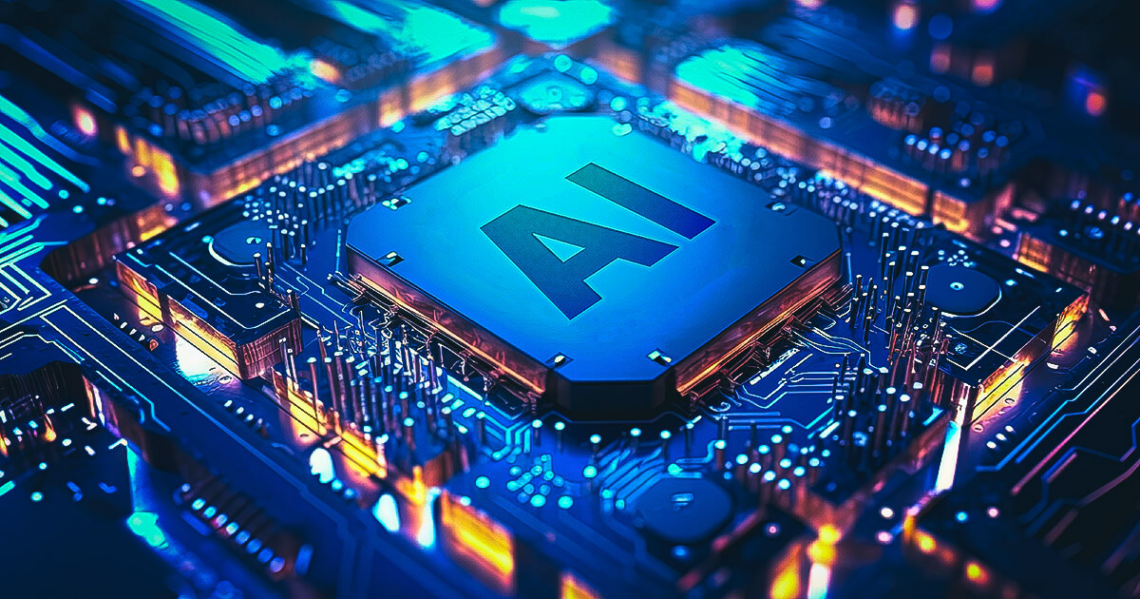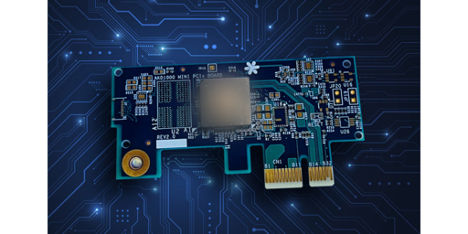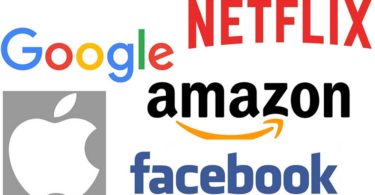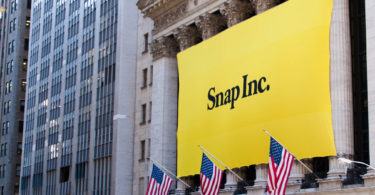Jeff Bezos Next Trillion Dollar Bet (Shocking)
Sponsored
If you've followed Jeff Bezos you know he's made a career out of spotting breakthrough technology long before his competitors… Whether it was the internet in 1994… Cloud computing in 2006… Or Alexa and A.I. in 2014… Bezos made himself the richest man in the world by looking around corners and spotting trends years ahead of everyone else… And on December 31st, 2021, Bezos has done it again… He's gone all in on the biggest tech breakthrough in history… And before you start guessing, this has nothing to do with A.I. or ChatGPT… Instead, it has to do with a technology Bank of America called, “Bigger than fire and bigger than all the revolutions that humanity has seen.” And this technology is going to change everything… 99% of Americans have no idea of what's about to happen… But I've put together a full presentation to explain what's going on… Go here now to see the full details.
By Anthony Di Pizio, Fool.com
Artificial intelligence (AI) is already reshaping the corporate world. Chatbot applications like OpenAI's ChatGPT can instantly craft text, images, videos, and computer code on command, which could drive a productivity boom worth trillions of dollars across the global economy.
Developing those AI applications wouldn't be possible without the data center graphics processing units (GPUs) designed by Nvidia (NASDAQ: NVDA). They contributed to an astronomical 427% increase in Nvidia's data center revenue in the recent quarter, pushing sales to a record $22.6 billion.
That growth is the reason Nvidia's valuation recently topped $3.2 trillion, making it one of the largest companies in the world.
Nvidia's incredible run won't last forever
Artificial general intelligence (AGI) describes the point when AI matches human intelligence across most cognitive tasks. Some researchers — including one who worked for OpenAI — believe AGI could be achieved as soon as 2027 given the lightning-fast pace of development.
As is the case with most technologies, the continued advancement of AI beyond that point could yield diminishing returns. In other words, the number of commercial workloads that could benefit from machine intelligence beyond AGI is probably quite small. If that's the case, data center operators won't have to buy every new version of Nvidia's GPUs because the pool of developers who want (or can afford) the performance increase will also shrink.
That could put the brakes on Nvidia's growth by the end of this decade.
Cathie Wood's Ark Investment Management has been a consistent seller of Nvidia stock this year. Wood believes software companies could generate $8 of revenue for every $1 they invest in Nvidia's chips, so she feels that's where the next opportunity lies. Ark is joined by several billionaire fund managers who have also trimmed their Nvidia holdings recently.
Wall Street thinks Nvidia will generate $3.61 in earnings per share in fiscal 2026, giving its stock a forward price-to-earnings (P/E) ratio of 35.2. The Nasdaq-100 index trades at a P/E ratio of 31.9 today, so if you believe Nvidia will trade at a market multiple over the long term, investors who buy the stock now will have to wait two years before its earnings catch up to the recent run in its stock price.
Of course, Nvidia stock could also achieve a cheaper P/E ratio by falling. Whichever scenario plays out, here's why I think AI titans Microsoft (NASDAQ: MSFT), Apple (NASDAQ: AAPL), and Alphabet (NASDAQ: GOOG)(NASDAQ: GOOGL) will be worth more than the chip giant by 2030.
*****************
CEO Says This Is Worth 9 Amazons
What in the world could be worth 9 Amazons?
The answer is a radical breakthrough that Wired says is “the rocket fuel of AI.”
******************
1. Microsoft
With a market cap of $3.3 trillion, Microsoft is already slightly bigger than Nvidia. However, if Cathie Wood is right about software being the next big AI opportunity, Microsoft is making all the right moves to extend its market cap advantage through the end of this decade.
After announcing plans to invest $10 billion in OpenAI last year, Microsoft used the start-up's latest GPT-4 models to create an AI assistant called Copilot. It's available with most of Microsoft's flagship software products.
For example, businesses can now pay an additional monthly subscription fee to access the Copilot-enabled version of 365 (Word, Excel, PowerPoint, Outlook, and more). With 400 million enterprise seats potentially eligible for that upgrade, it could translate into billions of dollars in extra annual recurring revenue for Microsoft.
Microsoft's Azure cloud platform has also become a distributor of the latest AI models for tens of thousands of organizations. That includes 65% of the Fortune 500 companies that are using the Azure OpenAI Service to build their own AI applications, utilizing large language models (LLMs) like GPT-4 as a base.
Microsoft is on track to generate $244.9 billion in total revenue in fiscal 2024 (ending June 30), which is more than Nvidia is expected to generate nearly two years from now. Plus, Microsoft's current P/E ratio of 38.1 is a whopping 45% discount to Nvidia's current P/E ratio of 70.2. It's actually closer to where Nvidia's P/E ratio is expected to be in fiscal 2026, as I highlighted earlier.
Microsoft has a track record of success spanning almost five decades, and so long as the company continues to grow on the top and bottom lines, its market cap will likely increase in the coming years, whereas Nvidia faces downside risks.
2. Apple
Apple is another $3 trillion giant, and it might also have an edge over Nvidia in the long run thanks to its incredible hardware and software ecosystem. There are more than 2.2 billion active Apple devices worldwide, led by the flagship iPhone, and the company will use that installed base to become the largest distributor of AI to consumers.
It will achieve that through Apple Intelligence, which is set to launch in September within the new iOS 18 operating system. It was developed in partnership with OpenAI, so it will feature industry-leading models that promise to transform Apple's existing software. For example, the Siri voice assistant will draw on the expansive knowledge of ChatGPT, and apps like Mail, Notes, and Messages will be overhauled with a host of new writing tools to help users draft content more quickly.
Apple Intelligence is expected to drive a large upgrade cycle when the hotly anticipated iPhone 16 launches later this year, because rumors suggest it will feature a more powerful chip designed specifically for processing AI workloads. This will unlock a much faster experience for users who wish to lean on AI day-to-day.
Wall Street expects Apple to generate $386 billion in revenue during fiscal 2024 (ending September 30), which is more than Microsoft and Nvidia combined in their current fiscal years. Plus, Apple trades at a P/E ratio of 32.2 at the moment, so it's cheaper than both of its $3 trillion peers.
While Nvidia is already reaping substantial financial rewards from AI, Apple's AI story is only just beginning, and it could have much more long-term potential given the sheer size of its ecosystem.
3. Alphabet
Alphabet is the parent company of Google, YouTube, Waymo, and DeepMind. Google Search currently dominates the internet search industry with a 90% market share, but there have been concerns about AI applications like ChatGPT eroding its advantage. Simply put, chatbots offer a more convenient way to access information compared to traditional search, which requires the user to sift through web pages for answers.
Alphabet responded to that threat by launching a series of AI chatbots of its own, culminating in the new Gemini models. Plus, the traditional Google Search experience now uses generative AI to provide users with text-based answers to their queries at the top of the page, saving them from visiting third-party web pages.
Those two initiatives should protect the platform's dominance, and there was evidence of that in the first quarter of 2024. Revenue generated from Google Search increased by 14.3% compared to the year-ago period, marking the fastest growth rate in almost two years.
Plus, Alphabet now offers Gemini to existing Google Workspace subscribers for an additional fee, where they can integrate it with Gmail, Google Docs, Google Sheets, and more to help users boost their productivity with AI. It's similar to the way Microsoft is offering Copilot for 365, and it effectively creates a new recurring revenue stream for Alphabet.
Alphabet stock trades at a P/E ratio of about 27.5 right now, so not only is it much cheaper than Nvidia, Microsoft, and Apple, but it's also cheaper than the Nasdaq-100 index. If Cathie Wood is right about AI software, Alphabet stock looks like an absolute bargain right now compared to Nvidia.
New chip holds monopoly in $7 Trillion market (Not Nvidia)
Sponsored
Nvidia may hold a monopoly in the AI chip industry… But there's another company with a chip monopoly that has nothing to do with AI… And believe it or not… This little known company could generate Nvidia sized gains for those who get in early. Do you see this chip right here?
It might not look like much… But that chip is set to revolutionize a $7 Trillion industry in the next few years. According to Bill Gates… “This is as revolutionary as the personal computer, the Internet, and the mobile phone.” And there's one tiny company who holds the patents to this groundbreaking innovation… Click here to get all of the details.









